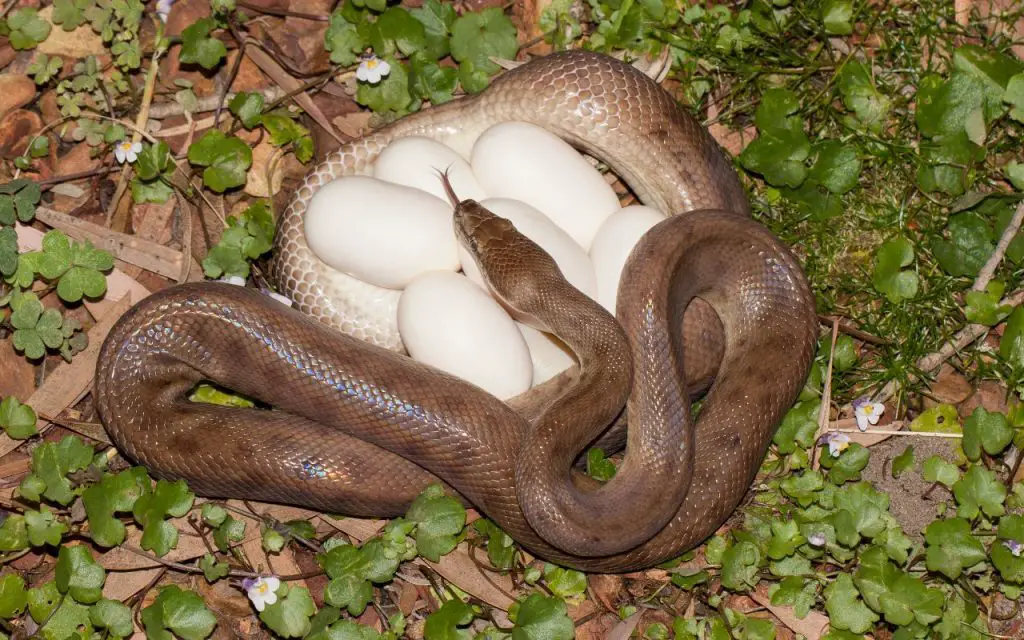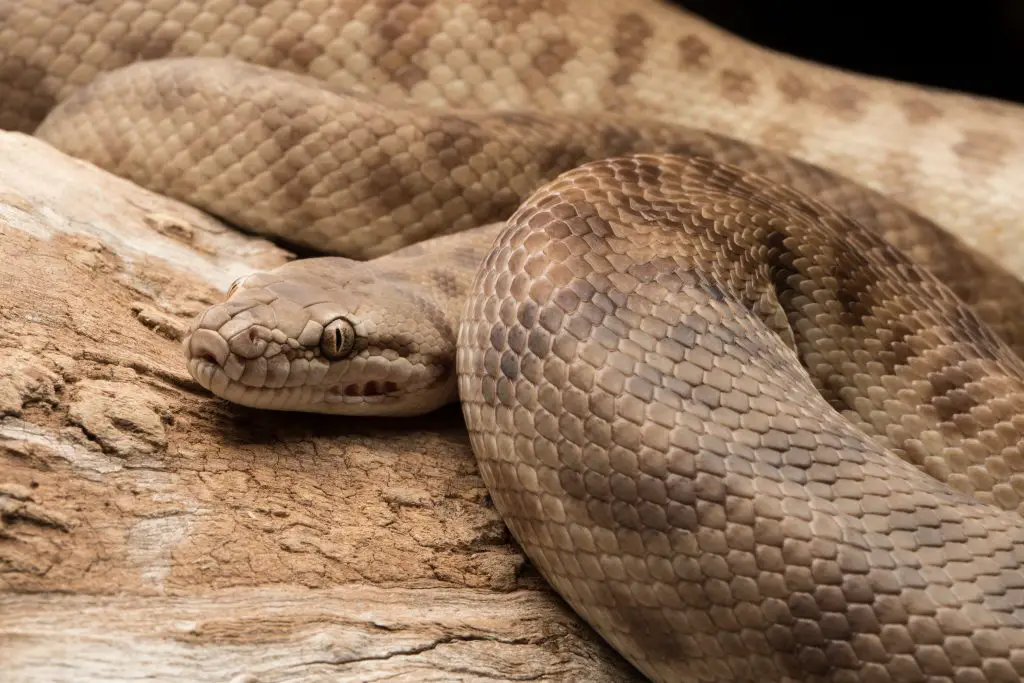Over the years I’ve kept a lot of snakes, but I have to say the Pythonidae is one family that keeps on giving. A species I’ve spent considerable time with is the Children’s Python (Anteresia childreni), which is one of the smallest, most chilled-out constrictors around. Nonetheless, a frequent query from both novices and seasoned snake keepers alike is: Are Children’s Pythons friendly?
Having had the pleasure of caring for several Children’s Pythons, each possessing a distinct personality, I can provide some first-hand experiences. So, let’s take a closer look at their temperament…
General Temperament of Children’s Pythons
Generally, Children’s Pythons are renowned for their mild-mannered disposition. They seldom exhibit defensive tendencies, making them a preferred choice for both novice and experienced snake owners. Each of the Children’s Pythons in my care has displayed this overall temperament so long as it had a good setup.
All-in-all, it’s worth noting that most Pythons are very laid-back, and it’s usually colubrids that most of us keepers get repeatedly nipped by. That’s what I like about this species – it’s the size of a colubrid, but without any nippiness.
Interaction and Handling: Insights from Experience
When it comes to determining a snake’s friendliness, handling and interaction serve as critical indicators. Here’s a broad overview of how the Children’s Pythons in my care react to different aspects of handling:
- Tolerance to Handling: The Children’s Pythons I’ve cared for generally display a high level of tolerance to handling. They rarely react negatively when handled gently and respectfully.
- Stress Levels: While any snake can exhibit stress due to over-handling, Children’s Pythons generally show a higher level of resilience.
- Defensiveness: Often misconstrued as aggression, defensiveness is rarely an issue with this species. Defensive behavior is generally displayed only in moments of vulnerability, such as during shedding.
This information can be summarized in the following table:
| Aspect | Children’s Python Response |
|---|---|
| Tolerance to Handling | High |
| Stress Levels | Moderate to Low |
| Defensiveness | Low |

Factors Influencing Friendliness: An Experienced Perspective
While the species is typically recognized for its friendly demeanor, several factors can significantly influence a Children’s Python’s temperament:
- Handling Frequency: Regular, gentle handling from an early age helps these snakes grow accustomed to human interaction, fostering their friendliness.
- Environment: A comfortable, stress-free environment plays a significant role in promoting a friendly disposition.
- Health: Health directly affects temperament. A snake dealing with any health issue can understandably display changes in mood. Regular health checks and timely veterinary attention are essential.
- Feeding Routine: Proper feeding impacts temperament. I’ve noticed that just before feeding time, a usually friendly Children’s Python can display a slightly grumpy attitude. However, they quickly return to their friendly selves after a satisfying meal.
Making a stress-free environment for your snake
If you’ve read any of my care sheets for other species (like the full Antaresia childreni husbandry guide), you’ll have noticed how much importance I attach to hiding places.
Snakes vary in how nervous they are, but in general they all get either very defensive of very shy if deprived of good hiding places.
This should your main focus when trying to foster a stress-free environment for your Children’s Python. It will need a sturdy, snug hiding place on both sides of the enclosure, my preference being the Exo Terra Reptile Caves.
In addition, be sure to put the enclosure somewhere quiet, with low footfall. If your snake can constantly see or hear people near its home it won’t be able to relax. Remember, their hearing is poor – but not non-existent.
Fostering Friendship with Your Children’s Python
Having cared for several Children’s Pythons, here are some steps I’ve found to be effective in fostering a friendly relationship:
- Begin with Short, Gentle Handling Sessions: This helps the snake grow accustomed to your presence, leading to greater comfort and trust over time.
- Respect Their Space: Even the friendliest snake can have its off days. If your snake shows signs of stress, give it some space and try again later.
- Maintain a Consistent Routine: Regular feeding, cleaning, and handling schedules provide a sense of stability and security.
- Understand Their Unique Behavior: Each snake is unique, with its own likes and dislikes. Learning to understand and respect these nuances can help you better meet your snake’s needs, leading to a stronger bond.
- Be Patient: Building trust and friendship with a snake takes time and patience. But the rewards, in the form of a unique interspecies bond, are well worth the effort.
Are Children’s Pythons friendly? Final thoughts…
In conclusion, my experiences have consistently shown that Children’s Pythons are indeed friendly by nature (or at least very docile). Their tolerance for handling and lower stress levels make them a joy to keep as pets.
It’s important to remember, though, that every snake is an individual with its own unique personality and needs. By understanding and meeting these needs, you can ensure your pet’s health and happiness, and foster a truly unique bond.
If you’re trying to decide what snake to get for your first pet reptile, then I would strongly suggest considering the Children’s Python. At only 3ft (1m) long, it is a very manageable captive.

FAQ relating to Children’s Python temperament:
Are children’s pythons good for beginners?
Children’s Pythons are considered to be very good for beginners. They are small, docile, and have simple husbandry requirements. They don’t need excessive warmth, humidity, or specialised UV lighting. Overall, they only have one real drawback, namely that they can be hard to find for sale in Europe and the US.
What is the personality of a Childrens Python?
Children’s Pythons are docile, slow-moving snakes that are very reluctant to bite. It is also quite happy to be handled for 5-10 minutes every few days once tamed. Generally speaking, this species is also unlikely to try to wriggle free or make sudden movements.
Are pythons friendly to humans?
Pythons have a fearsome reputation thanks to the size of some species. Notwithstanding, several python species are incredibly tame. The Children’s Python, Burmese Python, and Ball Python are all known for their laid-back dispositions. They may not be friendly in the same way a dog or cat is, but they certainly are docile.
How do you handle a children’s python?
Always pick up a Children’s Python by the body, with two hands. The idea is to scoop it up from underneath so that it feels safe from falling at all times. You should never pick up a harmless snake by the neck or tail, as both ways can potentially injure it.

